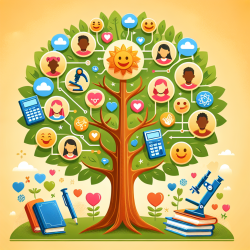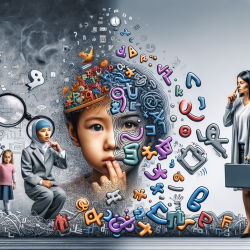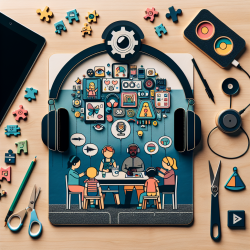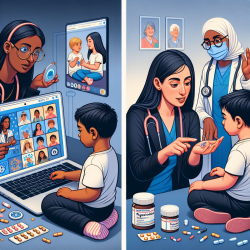Introduction
As educators, we are constantly seeking ways to improve the academic outcomes of our students. Recent research highlights the significant role that social and emotional learning (SEL) plays in fostering academic success. The study "Social and Emotional Learning and Ninth-Grade Students’ Academic Achievement" provides valuable insights into how SEL competencies, particularly relationship skills, can impact academic performance. This blog aims to guide practitioners in leveraging these findings to enhance their educational practices.
The Importance of Social and Emotional Learning
Social and emotional learning (SEL) encompasses the development of skills such as self-awareness, emotional regulation, empathy, relationship-building, and responsible decision-making. These competencies are crucial for students' overall well-being and academic success. According to the Collaborative for Academic, Social, and Emotional Learning (CASEL), SEL not only improves students' social interactions but also enhances their academic engagement and performance.
Key Findings from the Research
The study conducted by Atkins et al. (2023) focuses on ninth-grade students and examines the relationship between SEL competencies and academic achievement. The research utilizes data from the High School Longitudinal Study of 2009, which includes a nationally representative sample of over 23,000 students. The study highlights the following key findings:
- Relationship Skills and Academic Achievement: Students with higher relationship skills scores tend to achieve better academically. This correlation is particularly strong in public schools, where diverse socio-demographic backgrounds are prevalent.
- Impact of School Climate: A supportive school climate enhances students' SEL competencies, leading to improved academic outcomes. Private school students generally report higher relationship skills scores, potentially due to a more favorable school climate.
- Role of Socialization: Informal socialization, such as interactions with parents and friends, positively influences academic achievement. This effect is more pronounced in public schools, where diverse social interactions are common.
Implications for Practitioners
Based on these findings, practitioners can take several actionable steps to integrate SEL into their educational practices:
- Foster a Supportive School Climate: Create an environment where students feel safe, accepted, and supported. This can be achieved through positive teacher-student relationships and inclusive school policies.
- Promote Relationship Skills: Encourage activities that build students' relationship skills, such as group projects, peer mentoring, and collaborative learning experiences.
- Engage Families and Communities: Involve parents and community members in SEL initiatives to reinforce the importance of social and emotional competencies outside the classroom.
- Utilize Data-Driven Approaches: Regularly assess students' SEL competencies and use data to tailor interventions that address specific needs.
Encouraging Further Research
While the study provides valuable insights, it also highlights the need for further research, particularly in understanding the nuances of SEL implementation in different school settings. Practitioners are encouraged to engage in ongoing research to explore innovative SEL strategies and their impact on diverse student populations.
To read the original research paper, please follow this link: Social and Emotional Learning and Ninth-Grade Students’ Academic Achievement.










